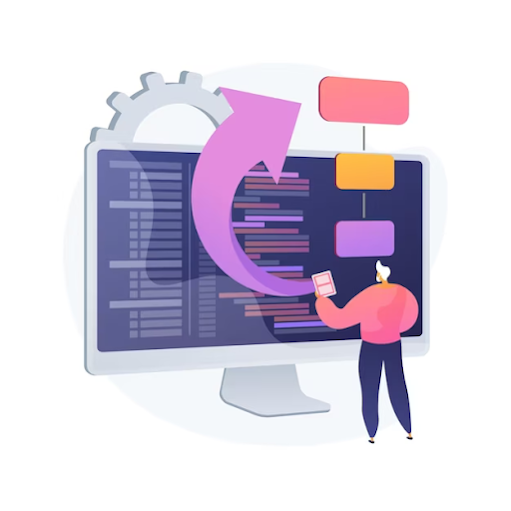In an era driven by digital transformation, establishing a strong online presence is crucial for businesses across all industries, including the oil and gas sector. Web design and development play a pivotal role in shaping a company's digital identity, facilitating communication, and showcasing its products, services, and expertise to a global audience. This comprehensive guide explores the importance of web design and development for oil and gas companies, along with creative examples that demonstrate innovative approaches to online representation. Additionally, it discusses the role of web application development companies in delivering custom web application services tailored to the unique needs of the industry.
Importance of Web Design and Development for Oil and Gas Companies
Brand Representation: A well-designed website serves as a digital storefront, reflecting the brand identity, values, and mission of the oil and gas company. Professional web design instills trust and credibility among stakeholders, including investors, customers, and partners.
Information Dissemination: Websites serve as central hubs for disseminating information about the company's operations, projects, technologies, and sustainability initiatives. By providing relevant and up-to-date content, oil and gas companies can educate stakeholders and enhance transparency.
Lead Generation and Conversion: An effective website acts as a lead generation tool, attracting potential clients, investors, and job seekers through search engine optimization (SEO), content marketing, and intuitive user experiences. Conversion-focused design elements encourage visitors to take desired actions, such as requesting quotes, subscribing to newsletters, or contacting the company.
Recruitment and Talent Acquisition: Oil and gas companies rely on their websites to attract top talent and showcase career opportunities. A user-friendly careers section with job listings, application portals, and employee testimonials helps attract and retain qualified professionals.
Customer Engagement and Support: Websites facilitate communication and engagement with customers by offering resources, FAQs, contact forms, and customer support channels. Interactive features such as live chat, virtual tours, and webinars enhance the user experience and foster meaningful interactions.
Creative Examples of Web Design and Development for Oil and Gas Companies
Chevron: Chevron's website features a clean and modern design with intuitive navigation and interactive elements. The homepage highlights the company's commitment to innovation, sustainability, and community engagement through visually compelling graphics, videos, and case studies. Visitors can explore Chevron's global operations, projects, and initiatives through immersive multimedia content and interactive maps.
ExxonMobil: ExxonMobil's website showcases its industry leadership and technological prowess through a sleek and sophisticated design. The homepage offers quick access to news, investor information, and sustainability reports, while the "Energy Outlook" section provides insights into the future of energy trends and innovations. Interactive infographics and data visualizations enhance engagement and understanding of complex topics.
Shell: Shell's website emphasizes its commitment to sustainability, innovation, and social responsibility through compelling storytelling and multimedia content. The "Projects and Sites" section provides detailed information about Shell's global operations, including exploration and production activities, LNG projects, and renewable energy initiatives. Interactive features such as 360-degree tours and virtual reality experiences offer immersive glimpses into Shell's operations and technologies.
BP: BP's website prioritizes user experience and accessibility, with a mobile-responsive design and intuitive navigation. The homepage features dynamic content modules that highlight BP's latest news, projects, and partnerships. Interactive infographics and animations educate visitors about BP's energy transition strategy and low-carbon initiatives, while the "Investors" section offers comprehensive financial data and reports.
TotalEnergies: TotalEnergies' website showcases its transformation from a traditional oil and gas company to a diversified energy major with a focus on sustainability and innovation. The homepage features striking visuals, interactive maps, and immersive videos that highlight TotalEnergies' global presence, renewable energy projects, and digital transformation initiatives. Visitors can explore the company's commitment to decarbonization, circular economy, and social responsibility through engaging multimedia content and case studies.
Role of Web Application Development Companies in Custom Web Application Services
Web application development companies play a crucial role in delivering custom web application services tailored to the specific needs and objectives of oil and gas companies. These services may include:
Custom Website Development: Web application development companies specialize in designing and developing custom websites that align with the branding, functionality, and scalability requirements of oil and gas companies. From responsive layouts and intuitive navigation to interactive features and content management systems (CMS), custom websites are tailored to enhance user experience and achieve business goals.
Data Visualization and Analytics: Oil and gas companies rely on data visualization tools and analytics dashboards to monitor operations, analyze performance metrics, and make informed decisions. Web application development companies leverage advanced technologies and frameworks to develop custom data visualization solutions that transform complex data into actionable insights.
E-Learning and Training Platforms: Oil and gas companies invest in e-learning and training platforms to educate employees, contractors, and partners about industry best practices, safety protocols, and regulatory compliance. Web application development companies develop custom e-learning platforms with interactive modules, quizzes, and assessments that enhance learning outcomes and engagement.
Supply Chain Management Systems: Web application development companies design and develop custom supply chain management systems that streamline procurement, logistics, and inventory management processes for oil and gas companies. These systems integrate with existing ERP systems and third-party APIs to optimize supply chain operations and ensure timely delivery of resources and materials.
Asset Management and Maintenance Tools: Oil and gas companies rely on asset management and maintenance tools to track equipment, schedule maintenance activities, and optimize asset performance. Web application development companies build custom asset management systems with predictive maintenance algorithms, IoT integration, and mobile accessibility to improve asset reliability and uptime.
Conclusion
Web design and development play a critical role in shaping the digital presence and reputation of oil and gas companies in today's interconnected world. By investing in custom web application services and partnering with web application development companies, oil and gas companies can create compelling online experiences that engage stakeholders, showcase expertise, and drive business growth. Creative examples from industry leaders demonstrate innovative approaches to web design and development, highlighting the importance of user experience, storytelling, and sustainability in shaping the future of the oil and gas industry's digital landscape.
Read More About This Post: Elevating Online Presence: Web Design and Development for Oil and Gas Companies with Creative Examples










